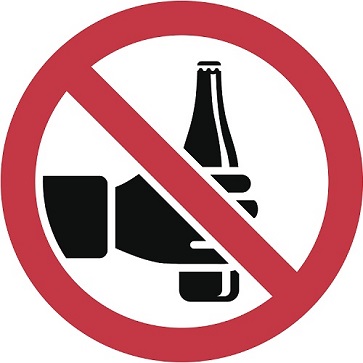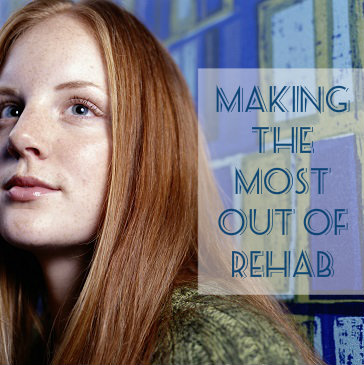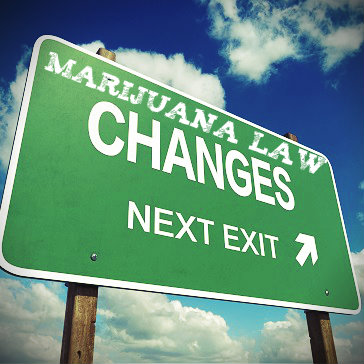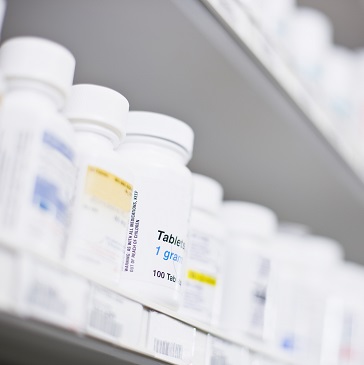03 Sep / 2014
The Dangerous Side-Effects Of Synthetic Marijuana
The effects of synthetic marijuana are as varied as the substances that make up this broad category of drugs. Makers of synthetic marijuana products attempt to create something that is legal and that also mimics the active compounds in cannabis. Of course, most of these manufacturers are more interested in profits than safety and the ill effects of using them are multiple. Popular with young people, these products have finally come to the attention of lawmakers who have attempted to put a stop to their sale. Drug makers always find a way around the laws, however, so it is important for parents and other adults to be aware of synthetic marijuana and how harmful it can be.
What Is Synthetic Marijuana?
 Fortunately for public health, most of these products have been outlawed, but they have not gone away. Marijuana comes from a plant called cannabis. It contains thousands of natural compounds, some of which have mind-altering abilities. It is for these compounds, called cannabinoids, that people smoke marijuana. They give the user a pleasant, sleepy, relaxed feeling. As a mind-altering, psychoactive product, marijuana is illegal in most places.
Fortunately for public health, most of these products have been outlawed, but they have not gone away. Marijuana comes from a plant called cannabis. It contains thousands of natural compounds, some of which have mind-altering abilities. It is for these compounds, called cannabinoids, that people smoke marijuana. They give the user a pleasant, sleepy, relaxed feeling. As a mind-altering, psychoactive product, marijuana is illegal in most places.
In an attempt to profit from the demand for marijuana, manufacturers have developed products that contain synthetic versions of the natural cannabinoids. They spray the formula onto some type of dried plant and sell it as incense, potpourri or even cleaners. These products are labeled in a way that makes it seem as if it is not a drug to be smoked. Of course, the intention is exactly that. Young people are enticed to buy it and smoke it, and then they suffer the synthetic marijuana side effects.
How Is Synthetic Marijuana Dangerous?
Real marijuana poses health risks, but the synthetic versions can be even more harmful. The main problem is that you can never be sure what is in the product. Marijuana is a natural product that is dried to be smoked. Synthetic versions may contain a whole host of compounds that the makers do not reveal. Some of the synthetic marijuana health effects that have been seen in users include anxiety, paranoia, shaking, emotional instability, hallucinations, panic attacks, dizziness, hot flashes and convulsions.
After too many teens and young adults were harmed from using synthetic marijuana products, lawmakers took action to ban the substances used to make them. Unfortunately, there are almost infinite possibilities when it comes to making synthetic variations of cannabinoids. When one substance is banned, drug manufacturers simply come up with another one. In most states, you can no longer buy the products that were disguised as potpourri or herbal smoking blends, but that does not mean synthetic marijuana has disappeared. Some people are still using it and are experiencing the ill effects. Be aware of this lab-produced drug and make sure that your children understand its risks.
Learn More About Synthetic Drugs And Their Dangers!
A long-standing philosophy of alcoholism treatment has been that total abstinence is necessary and that there is no possibility that someone with a drinking problem could handle moderate drinking. Today we know a lot more about addiction thanks to research and we know that it is more complicated than was previously thought. So, is it possible for a problem drinker to continue drinking responsibly and in moderation? Or is abstinence the only way to go?
What Does Moderation Mean?
 One immediate problem comes to mind when debating the possibility of moderate and responsibly drinking, and that is how to define it. Many problem drinkers and alcoholics are in denial about how much they drink and how much of an issue it is. It is not difficult to imagine that an alcoholic attempting moderation would use it as an excuse to keep drinking all the while claiming his habit was surely moderate.
One immediate problem comes to mind when debating the possibility of moderate and responsibly drinking, and that is how to define it. Many problem drinkers and alcoholics are in denial about how much they drink and how much of an issue it is. It is not difficult to imagine that an alcoholic attempting moderation would use it as an excuse to keep drinking all the while claiming his habit was surely moderate.
At a basic level moderation means setting reasonable drinking limits and sticking with them. According to the organization Moderation Management, which guides problem drinkers toward reducing their alcohol consumption, men should have no more than four drinks at one time and no more than 14 per week. For women, that amount is three at once and no more than nine per week. Both men and women are supposed to restrict drinking to three to four days each week.
Does Moderation Work For Problem Drinkers?
There are many proponents of moderation who claim that problem drinkers can more successfully establish a healthy relationship with alcohol by moderating than by abstaining. Research does seem to support this viewpoint. One study included participants, all of whom were problem drinkers to varying degrees, who attempted to moderate their habit rather than stop drinking completely. They used a website application designed to guide them through the process. Some used a simple website, while others used an interactive application.
The problem drinkers that used the website alone were able to raise their abstinent time during each month by about four percent. On days they did drink, their blood alcohol content dropped by 50 percent or more, which indicates that they reduced the amount of drinks significantly. For participants using an interactive application, the number of days without drinking at all doubled. Those that used both tools were able to reduce their drinking to fully moderate levels across the board.
Can True Alcoholics Drink Responsibly?
The study that showed moderation could be successful included some very heavy drinkers. However, they did not include people who experienced withdrawal, a key characteristic of alcoholism. So far there is little to no evidence that moderation could be possible for anyone who is seriously dependent on alcohol. In fact, many experts are in agreement that trying to drink moderately could be dangerous for true alcoholics.
This doesn’t mean that moderation is not a great way to help many people. Among all people who have a problem with drinking, most of them have not yet crossed the line into alcohol dependence. If these people can be reached with tools to help them change their drinking from a problem to responsible moderation, the incidence of alcoholism, and all the problems that go along with the disease, could be reduced.
For those people who are already physically and psychologically dependent on alcohol, abstinence is probably the only option. But, for millions of people across the country for whom drinking is a problem, moderation may be a strong motivational tool for making positive changes. The philosophy of abstinence only has been around for a long time, but a shift is starting to occur and it may be for the better.
Learn More About The Steps Of Alcohol Detox
01 Sep / 2014
What Kind Of Addiction Therapy Do You Need?
Addiction is a complex disease that starts in the brain and affects the entire body. It includes components of mental and physical health and requires an individualized treatment plan that addresses all the patient’s needs. A complete program of treatment for addiction should include some type of therapy or counseling, but with so many options available, it can be confusing. Learn about therapy and what it means for addiction to be sure you are getting the kind of treatment you need in order to heal.
Addiction Therapy Types
Individualized Treatment For Addiction
The first and most important thing to realize when getting treatment for your addiction is that the most effective plans are individualized. Addiction is both complex and personal. Everyone is different and responds differently to treatment approaches. Make sure that the therapist, counselor or rehab facility you work with will take this into account and has a philosophy of individualizing care.
Outpatient vs. Residential Therapy
 Receiving therapy on an outpatient basis means that you can stay at home and visit your treatment center at convenient times. This option works well for people who need to continue going to work and who have a strong support network at home. If your addiction is severe and you have no one to support you in your sobriety, you might want to consider getting therapy in a residential setting. This means staying overnight for a period of a week or up to several months in a facility dedicated to addiction treatment. Both types of care will allow you to get the therapy you need, but one may be better suited to your needs than the other.
Receiving therapy on an outpatient basis means that you can stay at home and visit your treatment center at convenient times. This option works well for people who need to continue going to work and who have a strong support network at home. If your addiction is severe and you have no one to support you in your sobriety, you might want to consider getting therapy in a residential setting. This means staying overnight for a period of a week or up to several months in a facility dedicated to addiction treatment. Both types of care will allow you to get the therapy you need, but one may be better suited to your needs than the other.
Cognitive-Behavioral Therapy
The type of therapy that you are most likely to encounter while being treated for addiction is called cognitive-behavioral therapy, or CBT. A therapist practicing CBT will help you to learn what prompts your drug use or drinking. CBT helps you to recognize these motivations and teaches you how to change your substance abuse behaviors. CBT is sometimes also combined with a type of therapy called mindfulness. This means learning how to be more aware of your mood, your physical symptoms and external factors so that you can recognize triggers and avoid relapsing and using drugs or alcohol after a period of sobriety.
Group Therapy And Support
Another important component of treatment for addiction is social therapy. When you can work with other addicts, people who understand what you are going through, your treatment becomes more powerful. Group therapy sessions are common in residential rehab facilities, but you can find groups to attend on an outpatient basis. The experience of sharing your struggles in a safe environment, and learning from others, is powerful and can advance your healing. The support of these other people can lead to lifelong relationships that help you to stay sober.
Family Therapy
Addiction often starts at home; working with your family as you go through therapy can be helpful. If members of your family are willing, a therapist will work with you as a group and consider the family as a system with its own special dynamics. Being able to open up with your family and getting to the root of some of your issues is not always comfortable, but it can go a long way toward helping you get and stay sober.
Therapy is an essential component of addiction treatment and one that you should consider carefully. If you have no idea where to start, let your physician refer you to a good therapist. From there you can plan your course of treatment, decide whether you need a residential facility and begin to work toward your goal of recovery.
Ready To Begin Addiction Therapy? Call Us Now To Learn More
29 Aug / 2014
Is My Child Addicted To Gaming?
Kids today have unprecedented access to technology and devices, which can be both positive and negative. Having access to the Internet and using tablets and smartphones can provide a wealth of educational opportunities. The dark side to all this access is the potential for obsessive behaviors. Video games and Internet gaming tend to lead to addictive-like behavior, and it can start early. If you’re wondering if your child spends too much time playing games, learn more about the potential for addiction and how to curb it.
Are Video Games Addictive?
 Experts in the field of addiction have debated the existence of so-called behavioral addictions for years and how they compare to chemical addictions. The latter refers to a “true” addiction to a mind-altering substance like alcohol or illegal drugs. A behavioral addiction is considered to occur when someone exhibits addictive behaviors with respect to anything other than drugs or alcohol. Some of the more common behavioral addictions include gambling, sex or pornography, shopping and eating. Behavioral addictions can cause similar symptoms to chemical addictions, such as withdrawal, lack of control and impulsiveness.
Experts in the field of addiction have debated the existence of so-called behavioral addictions for years and how they compare to chemical addictions. The latter refers to a “true” addiction to a mind-altering substance like alcohol or illegal drugs. A behavioral addiction is considered to occur when someone exhibits addictive behaviors with respect to anything other than drugs or alcohol. Some of the more common behavioral addictions include gambling, sex or pornography, shopping and eating. Behavioral addictions can cause similar symptoms to chemical addictions, such as withdrawal, lack of control and impulsiveness.
Internet and technology-related behavioral addictions are naturally on the rise as more people have access to the devices that enable the problem. Gaming can become a behavioral addiction, although some experts might refer to it as something different, such as Internet gaming disorder or an impulse control disorder. In fact, one study has reported that as many as one in ten children show signs of addiction when it comes to playing video games.
What Are The Signs Of A Video Game Addiction?
So how can you tell if your child is at risk or already showing signs of addictive behaviors? The main criterion is that the gaming is interfering with a child’s life. This could mean that your child’s gaming is causing his grades to deteriorate because he no longer has time to study. It could be that he spends so much time playing games that he doesn’t interact socially with his peers outside of school. It could also mean that he has damaged relationships with family members because of his habit. Other signs of addictive behavior include a preoccupation with gaming, thinking about it constantly, playing whenever possible, and feeling restless or irritable when not playing.
My Kid May Be Addicted To Gaming, Now What?
If you see signs in your child that he may be addicted to gaming, try to cut back the amount of time he spends playing. Cutting him off entirely doesn’t make sense, but you should be able to limit his time by setting certain gaming hours. It is also important that you model responsible technology use because actions speak louder than words. Insist that everyone in the family turn off devices at specific times of day, such as over dinner or when studying. Seeing everyone cut back on technology will help your child to be able to do the same.
When you try to cut back and find that your child just can’t do it, or that his responses to the limitations are irrational and severe, you may need some professional help. The addiction itself may not be the root of the problem either. Some experts have found that, as with drug and alcohol addiction, compulsive gaming often masks underlying mental health issues like depression or anxiety disorders. If you are concerned about your child’s use of video games and his overall mental health, see your pediatrician for referrals. You may have to get an evaluation and a diagnosis from an addiction specialist to truly get your child the help he needs.
28 Aug / 2014
How To Make The Most Out Of Rehab
Overcoming addiction is one of the biggest challenges that many people face. With dedication, support and the treatment administered by caring professionals in a rehab facility, all addicts have the ability to get clean and to learn to stay sober over the long term. Going through a successful drug rehab program takes effort on the part of the caregivers and the addict. If you are considering getting into rehab to treat your addiction, make the most of it in order to be successful.
 What Happens In Drug Rehab?
What Happens In Drug Rehab?
Start by learning what will happen when you enter a rehab facility. By being prepared ahead of time, you will give yourself a head start in the process of getting well. As you search for a facility for your care, hopefully with the support of a loved one, ask questions about what will happen when you enter treatment. Most likely you can expect to go through a detox and then get one-on-one counseling as well as participate in group therapy and support sessions. Beyond these basics, different facilities may use different activities and will operate based on different philosophies. Find out what those are before you start your treatment program.
Maintain A Positive Attitude While In Rehab
Going through rehab will be hard work. At times it will feel like you are failing, but when you keep your attitude positive, you will be more likely to succeed. Enter the process understanding that there will be ups and downs, but prepared to work hard for your sobriety and your healing. Remember that the first part, your detox, will be the hardest part, but that it will get easier from there. What happens during detox is that the drugs and alcohol leave your body and you feel sick as a result. When the withdrawal symptoms fade, you will be feeling better and ready to make it through your treatment.
Keep Up A Support System After Leaving Rehab
Having a support system is one of the best ways to ensure your success at getting and staying sober. No one can do this alone, and, once you leave treatment, your professional caregivers will no longer be there for you every day. Make sure you have at least one or two friends or family members willing to support you through this process. Involve these people as much as you can during rehab. If they are allowed to visit or participate, encourage them to do so. Words of encouragement for someone in rehab can make a world of difference, as can the support of loved ones afterward.
Drug rehab success rates statistics tell us that most addicts will relapse at some point after treatment. This does not mean that rehab was a failure, but it may mean that you need a tune up. Sometimes, making the most of the process means going back to try again and to get more help. Just remember to stay positive, to keep your support system around you and to not get discouraged by a small setback.
Learn More About Repairing Broken Relationships While In Rehab – Is Rehab The Time To Fix Relationships Or Just Yourself?
Call Us Now To Learn More About Drug Rehab – We Are Here For You…You Are Worth It.
27 Aug / 2014
What To Do When You Suspect Addiction In The Workplace
Addiction impacts all aspects of a person’s life. For a drug addict or an alcoholic, life revolves around getting a fix and chasing a high. Home life and personal life are often the first to suffer while many addicts are able to keep it together at work. Eventually, however, workplace performance will begin to suffer as well. It may get to the point at which you, as a coworker, boss, or employee, begin to notice that something isn’t right. So what do you do?
What If My Boss Is Drinking Or Abusing Drugs?
 When you have a problem at work, you usually turn to your boss for help, right? So what happens when you suspect she is an alcoholic or a drug addict? First, be aware of the signs of drug abusebefore you jump to conclusions. Signs that someone is struggling with addiction usually include significant changes. You may be suspicious if your boss, who is normally reliable, has begun showing up late for work or is missing appointments. Relationships may change as well. Your boss may become more short-tempered with everyone or detached from the rest of the office if she is abusing substances. Addiction also shows up in more obvious ways, such as the smell of alcohol, signs of inebriation, bloodshot eyes and tremors.
When you have a problem at work, you usually turn to your boss for help, right? So what happens when you suspect she is an alcoholic or a drug addict? First, be aware of the signs of drug abusebefore you jump to conclusions. Signs that someone is struggling with addiction usually include significant changes. You may be suspicious if your boss, who is normally reliable, has begun showing up late for work or is missing appointments. Relationships may change as well. Your boss may become more short-tempered with everyone or detached from the rest of the office if she is abusing substances. Addiction also shows up in more obvious ways, such as the smell of alcohol, signs of inebriation, bloodshot eyes and tremors.
If you suspect your boss is abusing drugs or alcohol, you should tread carefully. The best way to try to help your boss and protect yourself is to alert human resources. Your comments will be kept confidential so that there are no repercussions for you later. You may feel like you have a good relationship with your boss and that you can approach her about this, but beware; if she does have a problem, she may be in denial and may take it out on you. Help her, but protect yourself as well.
How Do I Handle A Coworker Using Drugs?
Confronting drug abuse or excessive drinking in a coworker may be a little different than when you suspect your boss. You may feel more comfortable approaching a coworker to have a discussion about your concerns. If you have a close relationship with this person you can talk to him about your concerns. Offer your help and support and be prepared to give it. If you are not comfortable with confronting this coworker you can, as with your boss, approach human resources instead. You should never feel like you have to cover for this person’s shortcomings or be subjected to any inappropriate behavior because of his problems. Your human resource department can help you in these situations and will keep your comments in confidence.
What If I See Someone Putting Others At Risk?
If you work in a typical office setting, a coworker or boss who abuses drugs or alcohol may not cause immediate dangerous consequences. However, there are plenty of work situations in which a person under the influence could cause great harm. For instance, a doctor or nurse or someone who operates machinery could seriously injure or even kill someone while inebriated.
In these situations it is essential that you shed light on the problem immediately to avoid accidents and harm. It is your responsibility to speak up if you see a coworker or your boss putting others at risk. If you cannot confront the person yourself, tell a supervisor or human resources right away. Not only will you be preventing immediate damage, but you will also be helping the addict in the long run.
Do Some Businesses “Reward” Drug Abuse? Find Out Now!
26 Aug / 2014
How Changing Marijuana Laws May Impact Children
Changing attitudes toward marijuana in society have led directly to voters changing laws in municipalities and across entire states. Nearly half of all states allow the use of marijuana for medical purposes and two allow adults to use it recreationally, even while the federal government still outlaws the drug entirely. Many people see the benefits of allowing more use of the drug (e.g., helping people with certain medical issues and increasing state revenues). Others are more worried about the unforeseen consequences, such as how greater access to marijuana will affect children.
Kids Mimic Adult Attitudes Toward Marijuana
 The changes in laws regarding the use of marijuana run parallel to the shift in the public’s general attitude toward this drug. Many supporters of marijuana legalization cite statistics and research that show how much safer the drug is than alcohol, a legal substance. Legalizing marijuana could make this less harmful substance as acceptable as alcohol. Many people see this as positive because it would provide tax revenue for state governments.
The changes in laws regarding the use of marijuana run parallel to the shift in the public’s general attitude toward this drug. Many supporters of marijuana legalization cite statistics and research that show how much safer the drug is than alcohol, a legal substance. Legalizing marijuana could make this less harmful substance as acceptable as alcohol. Many people see this as positive because it would provide tax revenue for state governments.
When you consider how children absorb the attitudes of the adults around them, you can understand how destructive legalized marijuana could be for young people. Most would agree that children and teens shouldn’t be allowed access to marijuana, but by sensing the lax attitude toward the drug that many adults have, young people will not take the risks of using marijuana seriously.
Alcohol, for instance, is legal for adults and considered to be socially acceptable among most people. As a result, teens use it too. Nearly half of all high school students drink, despite the negative consequences the behavior could produce. As adult attitudes toward marijuana shift to include social acceptance, you can expect teens to follow suit and begin to use the drug more often. As with alcohol, smoking marijuana is bad for teens. It affects the still-developing brain and can cause mental health issues as well as addiction.
Kids Poisoned By Marijuana
Laws giving adults greater access to marijuana mean children come into contact with the drug more than ever before. Because of this there has already been an increase in accidental ingestion by kids. Researchers found that there was a spike in visits to emergency rooms after states legalized medical marijuana and the federal government stated that it would not prosecute anyone with respect to its use for medical purposes.
One of the most common ways in which kids accidentally take in marijuana is through foods and drinks containing the drug. Such ingestions can cause children to have hallucinations, to have difficulty breathing, to lose consciousness, and even to die if the amounts are high enough or if the child isn’t treated immediately. What might be most worrisome about accidental poisonings of kids by marijuana is that it is a new phenomenon and doctors are not yet aware of all the possible harm it can cause.
Parental Neglect
Another way in which legalized marijuana, particularly for recreational use, may impact children is how parents getting high will treat their kids. Everyone knows how disruptive, and even abusive, an alcoholic parent can be to children, but what about a parent who gets hooked on using marijuana? Maybe the results would not be as devastating, but a parent who is high is not likely to do his or her job very well. Only time will tell if we see more neglect of children as marijuana use becomes legal.
Whenever laws change with respect to drugs or alcohol it is important to consider how the changes will affect young people. No matter how thoughtfully laws are crafted, or how careful adults and dispensaries are with the drug, children are bound to be impacted by increased access to marijuana.
Check Out More News On Drugs And Addiction
Buprenorphine is a drug that can be used to treat opioid addiction. It comes in two formulations called Subutex and Suboxone. Although these medications are designed and prescribed to help people overcome addiction, some people abuse them to get high. If you love someone battling opioid addiction, pay close attention and make sure he is not abusing the medication that is supposed to be helping him heal.
What Is Buprenorphine?
Buprenorphine is a synthetic opioid drug that blocks withdrawal symptoms. When the addict takes it, he can stop using heroin or painkillers without experiencing the withdrawal that leads many addicts back to substance abuse. Subutex contains buprenorphine alone and is supposed to be used first and for a short period of time. Suboxone includes a second drug, naloxone, which is intended to prevent abuse. It blocks the high that buprenorphine can impart to the user and is designed to be used after Subutex.
Can Someone Abuse Buprenorphine?
Buprenorphine was the first medication that the Food and Drug Administration allowed to be dispensed from doctors’ offices thanks to its successes in treating opioid addicts. Not all stories of buprenorphine use have been good, though. Some people have abused the medications, and although it is supposed to be impossible to overdose on, there have been deaths associated with Suboxone and Subutex abuse.
It is more difficult to get a high from buprenorphine, and also more difficult to overdose, than other opioids. It is possible, though, and some abusers are desperate enough to use this medication like an illegal drug. Dealers are making a killing selling black market buprenorphine, both to people wanting to abuse it and those wanting to use it as a treatment.
How Can I Tell Someone Is Abusing Buprenorphine?
It is important that you are vigilant with your loved one who has been prescribed buprenorphine. Not everyone realizes that there are risks associated with abusing it. Many are told that you can’t overdose on it, but this isn’t true. Make sure your loved one understands this risk and watch out for signs that he has started abusing his medication.
If you have lived with a drug addict you already know what many of the signs of abuse are. Maybe he has started:
- sleeping more
- missing days of work
- borrowing or stealing money
- having mood swings that seem inexplicable
Watch out for all the usual signs of drug abuse that you have seen before. If he starts acting like he used to when he was using, you should be concerned.
There are also specific symptoms associated with abusing buprenorphine medications. Side effects of the drugs that are possible include:
- flu-like symptoms
- sweating
- headaches
- mood swings
- nausea
- difficulty sleeping
Watch for indications that any of these are getting worse. If he is using more of the medication than directed, the side effects could be intensified. Other signs may include:
- hair loss
- emotional instability
- apathy
- a loss of interest in sex
- watery eyes
- muscle pains and cramping
- impaired memory
- depression or anxiety
Buprenorphine can be a powerful aid in helping opioid addicts get clean and stay clean, but there are risks that are often overlooked. As someone who loves an opioid addict, you should encourage him to use all the tools at hand to beat his addiction, including buprenorphine. But you should also be careful and look for signs that he has turned to his prescription medication for a high. If he has, confront him with love, understanding and patience, and help him to get back on the road to recovery.
If You Or Someone You Love Is Struggling With Addiction – Call Us Now – We Are Here For You 24/7


